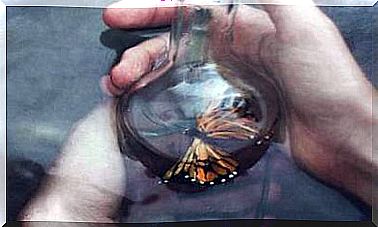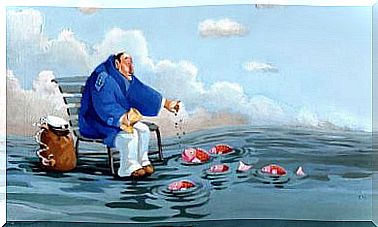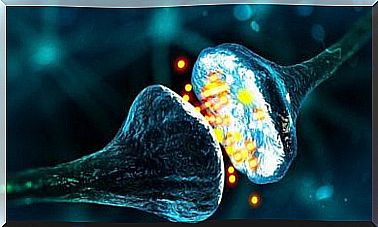The Personality Of The INFP According To Carl Gustav Jung – The Healer

The INFP personality defines introverted, intuitive, sentimental and perceptive people. According to Carl Gustav Jung, these are usually profiles that are endowed with great sensitivity, creativity and independence and represent a high level of idealism. They are people who are always looking for closeness to others, who are characterized by their compassion and are often defined as healers. This happens especially because they care deeply about their personal growth and promote that of their fellow human beings at the same time.
When we read Carl Gustav Jung’s book Psychological Types and His Theories of Different Personalities, we can see why they were a breakthrough in his day. At the time when psychology was still in its infancy , the famous Swiss psychiatrist laid the foundations for a personality model that was based on a unique and revolutionary approach at the same time.
He introduced the concepts of introversion and extroversion. However, he described these dimensions as being located on a continuum on which other subjective and perceptual phenomena can also act. On this basis, we understand that no one can be entirely “introverted” or “extroverted”, but that we are all within a spectrum in which various dynamics and traits define us.
In this way, his personality theory, comprising eight typologies, led decades later to the so-called Myers-Briggs indicator (1944), in which up to 16 subtypes were determined. Despite the fact that these models are not as popular as those based on popular instruments, such as the Cattells model of 16 personalities, it must always be remembered that there is still a great deal of interest in the area of personal growth.
Studies such as the one carried out by David J. Pittenger at Marshall University in Virginia, USA, show us that this is a very suitable means of promoting self-reflection. Since we know that such typologies can never reflect the actual diversity of human nature, we want to focus on one particular one in this article: the personality of the INFP.
“The privilege of life is to become who you really are.”
Carl Gustav Jung

What are the characteristics of the INFP’s personality?
According to the Myers-Briggs model, the personality of the INFP is the result of the interaction of four basic dimensions:
- The mode in which you use and channel your energy, attention, thoughts and interaction – introverted.
- The way in which you process reality, from which you draw conclusions and with which you also learn to appreciate the small details – intuitively.
- And also the way you make decisions – your feelings.
- When it comes to organizing and reacting to oneself and one’s surroundings, with this personality type this always happens through spontaneity and always on the basis of a fundamental dimension – perception.
This personality type therefore corresponds to the abbreviation INFP in English; it stands for “Introverted – Intuitive – Feeling – Perceptive”. That is why Katharine Briggs and Isabel Meyer defined him as the type of healer. However, this term does not refer to a personality who would have a keen interest in medicine. In truth, these are idealistic people who are highly involved in creating happiness and promoting their own growth and development, as well as that of others.
So now let’s look at the characteristics that define these people.
They are idealists and see the good in the world
Idealists of mind and heart are not in abundance. Therefore, the authors of the scale of the same name point out that this sixth typology in the Myers-Briggs model only makes up about 4% of the population.
- They are people who live for their ideals and trust in the natural goodness of the world.
- However, this idealism is by no means passive. This personality type is also characterized by a firm but quiet commitment. It doesn’t mean they’ll stop being introverts. There are not many people in the world who know so well the depth of their ideals and personal commitments.
- They do not hesitate to follow their personal path based on these principles, even if they encounter a lack of understanding or others never get to know them properly.
Ethical and compassionate
Your sense of ethics is very high. Likewise, they know very well what is good and what is not, and they do not hesitate to remain true to their faith and to defend it. However, they are not “bold” types either. They exercise their respect, compassion and attention to others through simple but always very deep deeds. Likewise, they always generate something good out of calm and absolute discretion.

Independent
One could say that the INFP’s personality usually shapes a life plan from its own heart. These people are highly sensitive but confident. They are mostly introverted and reserved men and women, but they are never indecisive when it comes to making a decision. They trust their intuition, their inner voice, also because they are idealists and believe that the world in its purest essence is noble and good.
Artistic, sensitive, careless
The personality of the INFP is usually based on art, literature, photography and any other artistic form in which a person can express their emotions, ideals and this inner, self-confident and optimistic world.
As I said, they are very sensitive personalities. For example, they appreciate the details and the sensations and they know how to get in touch with other people in a very simple and at the same time magical way. They are not the most talkative people, but they are very good at listening, supporting others, and just being there when they are really needed.
On the other hand, it has to be mentioned that they also like to act in an instinctive way. It is not important to them to plan things in advance, act on specific schedules, preprogram tasks, or organize their possessions and belongings. As a result, these people’s homes and closets are often a bit of a mess. They simply give priority to other things.

To conclude with this topic, we can summarize that people whose personality corresponds to the INFP are primarily defined by their trustworthy idealism, their kindness and their artistic interests. Hence, disappointment is one of the most common phenomena these people suffer from. The expectations of the world and those around you often lead to disappointment.
Carl Gustav Jung’s model of psychological types, and in particular the Myers-Briggs indicator, are valuable resources that are very easily accessible and extremely interesting. The remaining 96% of the population can still learn a lot about themselves by studying them!









